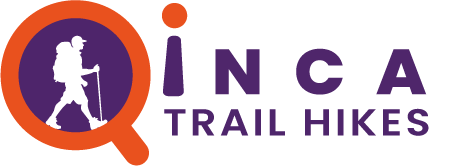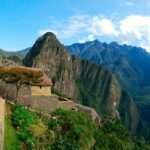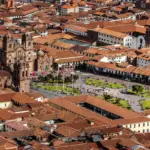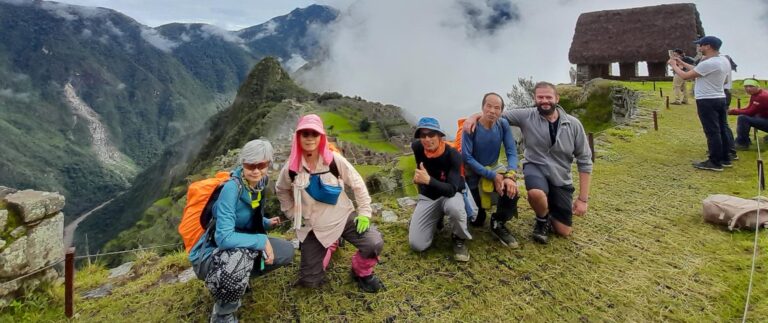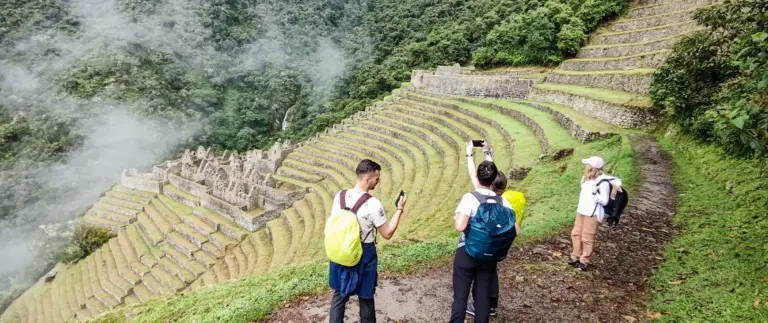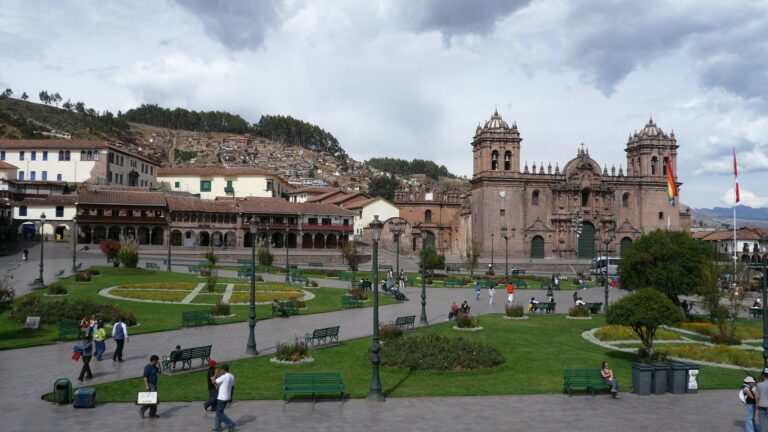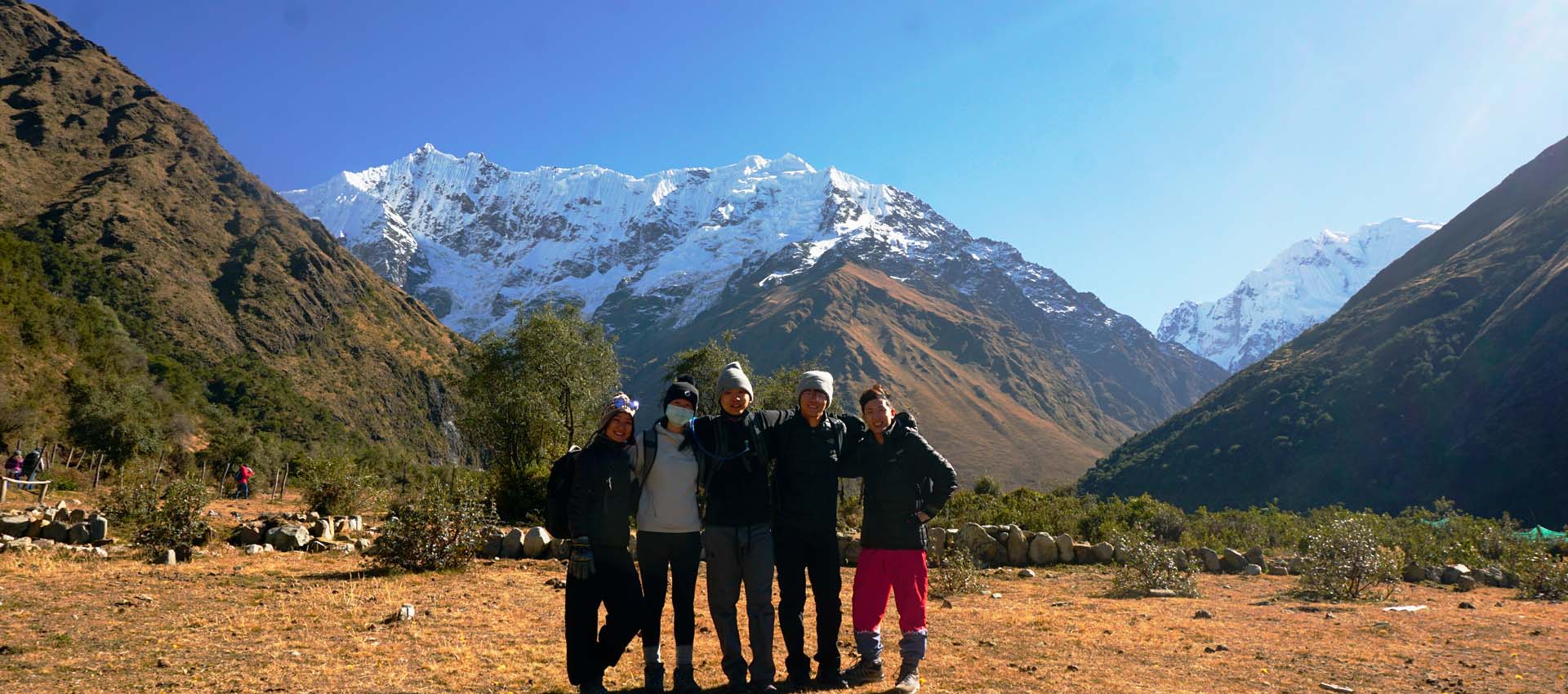
Salkantay Trek to Machu Picchu Travel Guide
It is hard to put into words the wonderous Salkantay to Machu Picchu trek. Have you long dreamed of trekking past the high Andean peaks, marveling at turquoise lakes, seeing spectacular mountain views and hiking through the ancient Andes Mountain ranges? On this adventure of a lifetime, you will be in awe at the dramatic changes in the scenery, from snowy mountain peaks, to cloud forests and even the Peruvian Jungle, all with the end goal of reaching the prodigious Machu Picchu.
Where does your Salkantay Trek start
Your Andean Mountain adventure begins early in the morning with a 3-hour drive to the start of the trail at Soraypampa. At Soraypampa, we have our delicious and hearty breakfast while enjoying the spectacular views of the Humantay and Salkantay Mountains and their surrounding glaciers.
When is the best time to go?
It is strongly recommended that you do the Salkantay trek to Machu Picchu in the dry season, which is from early April to late October. In the dry season the temperatures are lower, expect them to get below zero at night. The path is dry but can get windy in the afternoons. On the other hand, if you don’t mind the rain November and March also can be a great time to do the trek, less people and is really quiet.
4 Day Trek v 5 Day Trek
So, what should I do, the 4- or 5-Day Trek, this is a great question and mostly depends on the time you have available to do the trek? The 5-day trek is done at a slower pace taking in more sites and a different route and a few less kilometers every day. The 4 day is at a faster pace with more kilometers but still enjoying all the best the trail has to offer.
Altitude Sickness
Altitude sickness can sometimes be an issue at high altitudes. For the Salkantay to Machu Picchu trek, it is highly likely that you will experience some form of altitude sickness. For this reason, it is important to acclimatize properly, take your time on the trail, take measures to combat symptoms.
How to Prepare for your Salkantay Hike
While being moderately fit and physically able to walk at least 20 kilometers (12.5 miles) at lower elevations is essential, preparing for high altitude trekking is challenging. This is because you can’t predict how your body will react when it’s faced with these conditions, particularly as it’s not impacted by how fit, young or healthy you are. The best preparation for hiking the Salkantay trek is to arrive in Cusco at least two days before the trek begins to give your body time to acclimate. Get plenty of sleep, eat a light diet, do not drink alcohol, save that for the end of the trek, stay hydrated and be sure to get some Diamox to help your body adjust.
Highlights
Each day on the Salkantay Trail a new adventure awaits, whether it is revealing an amazing view or resting your muscles in the superb hot springs. There are many different things to see along the way, here are a few stops that can’t be missed along the way.
Highlights of the Salkantay Trek
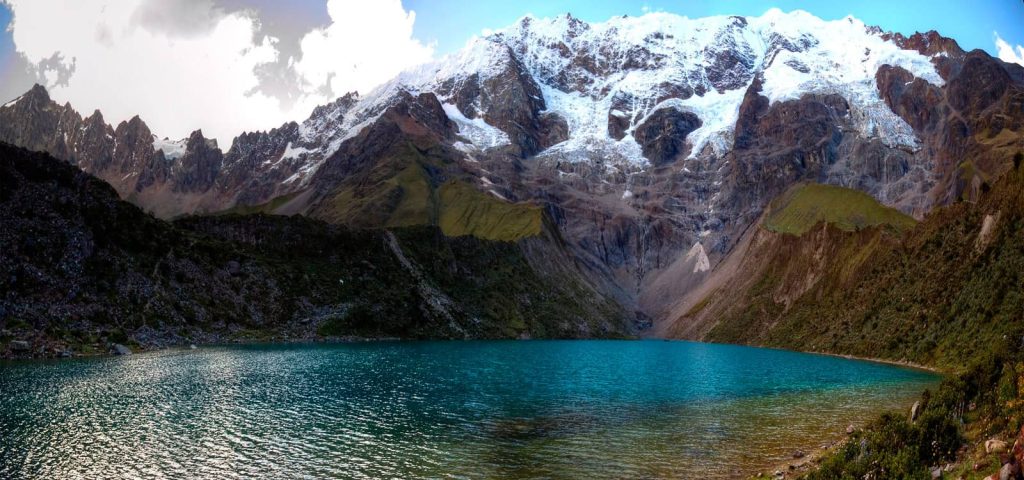
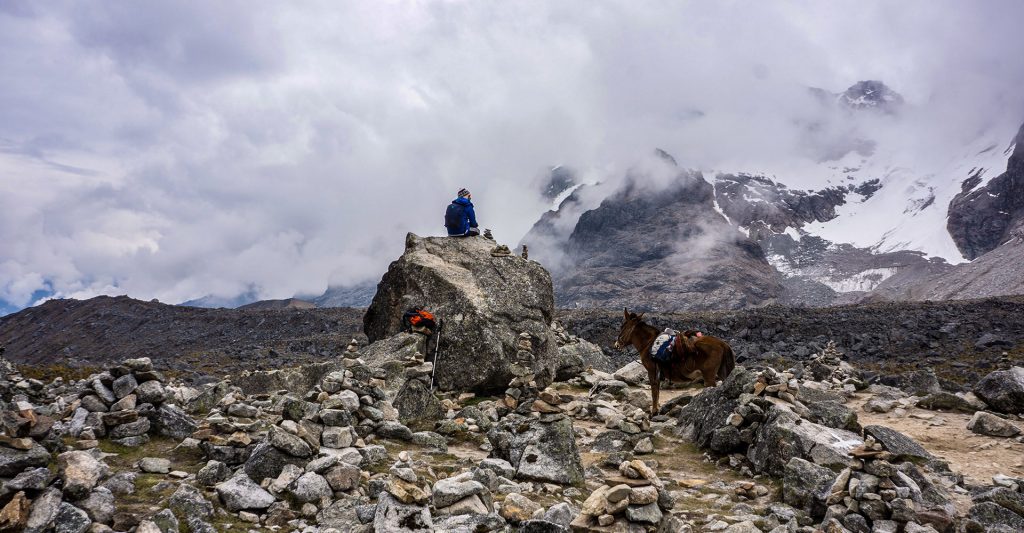
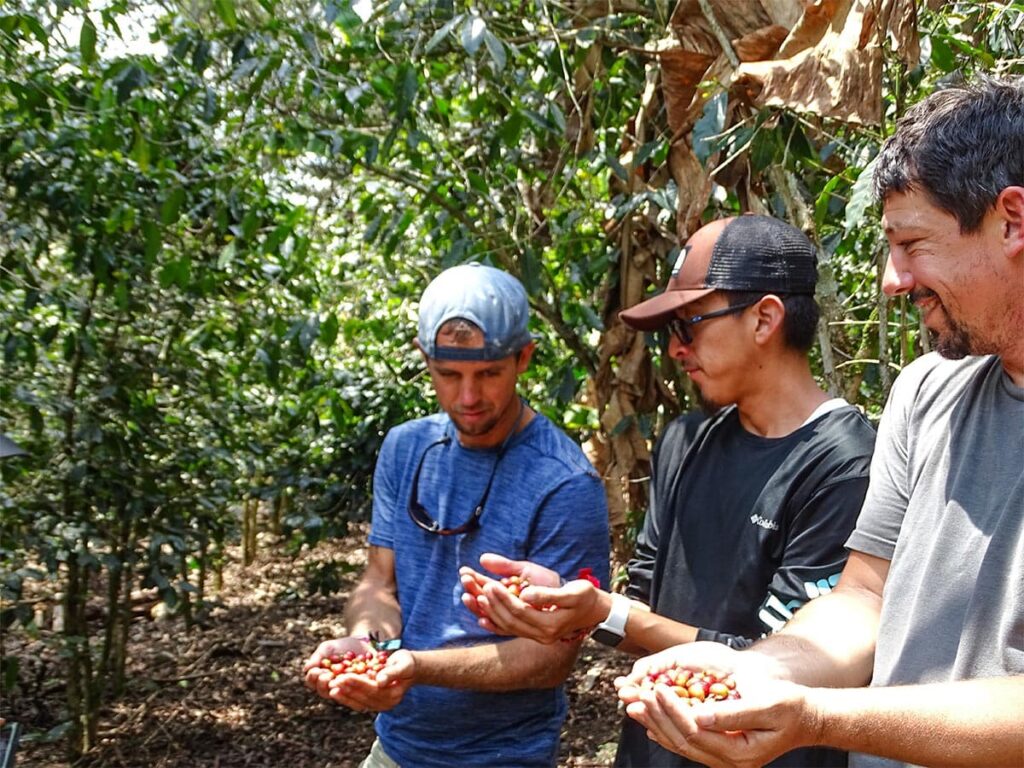
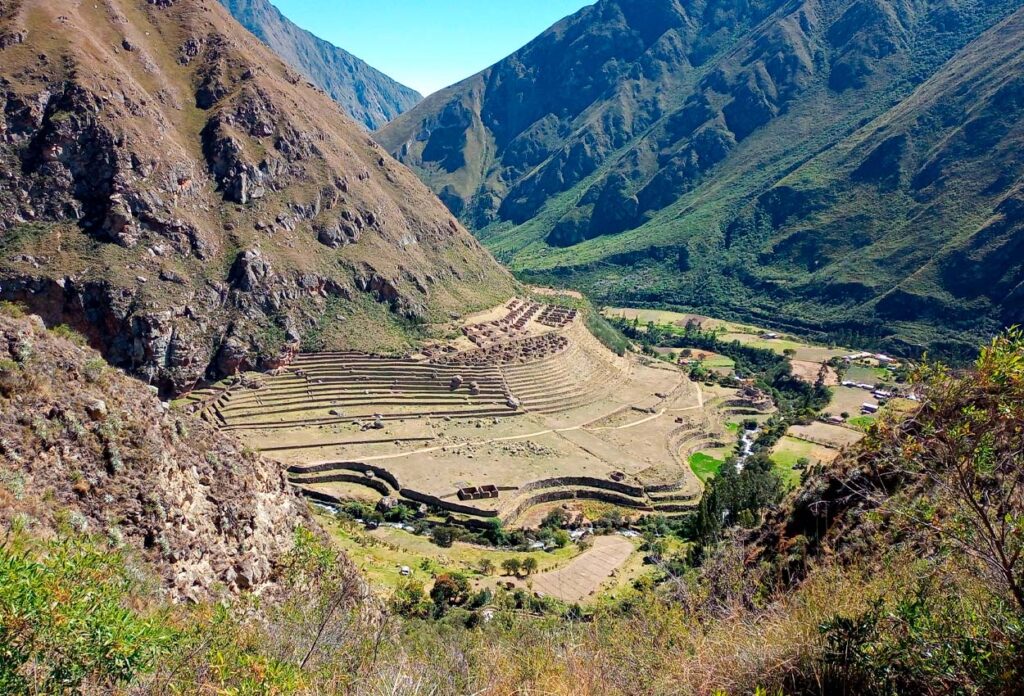
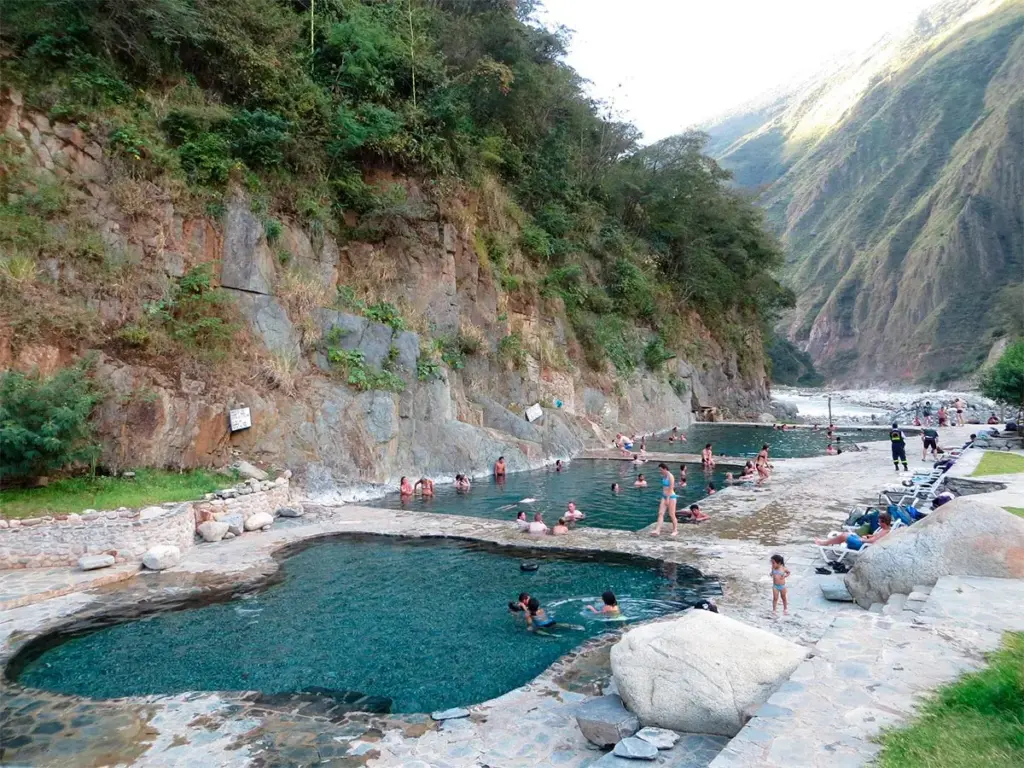
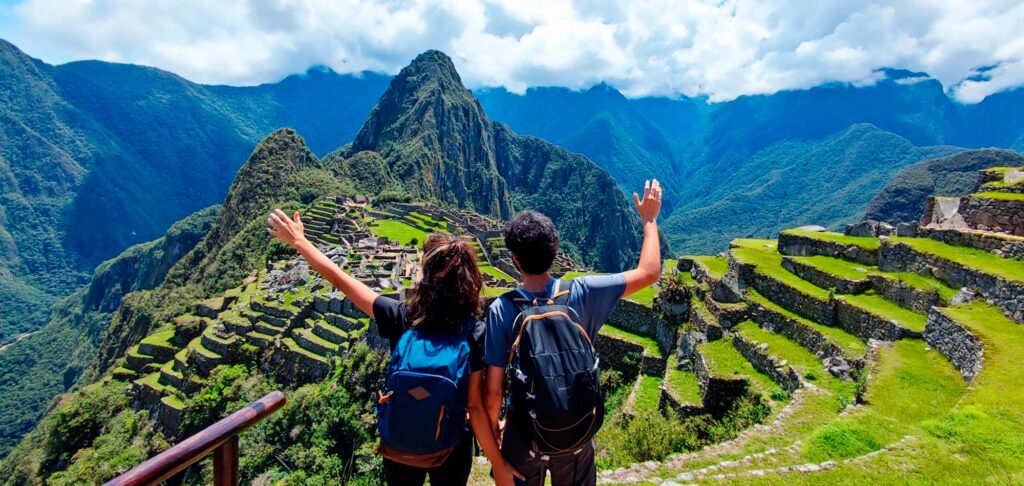
Humantay Lake
The exquisite turquoise water lagoon is surrounded by the impressive Humantay and Salkantay Peaks and offers one of the best views in Peru. The lake itself is runoff from the huge glacier located above the lake. Minerals within the glacier are released into the water as it melts, which give the water its characteristic emerald color. In the Andean regions of Peru, you can find beautifully colored mountainous lakes ranging from the brilliant greens to incredible crystal blues. The shade of the colors can also be dependent on the time of year, the temperature, and the weather.
Abra Salkantay Pass
When you reach the pass, come face to face with the sacred Salkantay mountain, this pass is at an elevation of 4630 meters above sea level. Feel the magic as you are truly awed by the spectacular views of three towering snow-capped mountains: Salkantay, Humantay, Huayanay. These peaks are considered sacred by the ancient peoples of Peru and your guide will inform you on how important these Apus are in traditional Andean beliefs. Below you are spectacular rivers of whitewater and small scenic lakes.
Coffee Plantation
Visit a working coffee plantation close to our lunch spot, here visit the fields and learn about the different types of beans. You may also pick your own beans, roast, grinding and taste your coffee, see how the coffee co exists with other vegetables like tomatoes and avocados.
Llactapata Inca Ruins
Being a mountain trek, you would think that no Inca ruins are visited during the Salkantay Trek, but you will visit Llactapata, an archaeological ruin that was also discovered by Hiram Bingham. An amazing view of Machu Picchu is enjoyed from this point. Here we can take the time to marvel at the strategic location of the Citadel of Machu Picchu and its surrounding mountains of Huayna Picchu, Machu Picchu and the Aobamba Canyon.
Cocalmayo Hot Springs
The Cocalmayo Hot Springs are said to have special healing properties and the water temperature can reach 45 degrees, so these natural thermal baths are ideal to relax and recover your sore muscles after a long hiking day. The surrounds are an impressive environment of verdant vegetation next to a raging river. Hot springs are Mother Nature’s method of infusing tired bodies with relaxation. The Cocalmayo hot springs are a popular destination among travelers seeking a connection with the earth and its balance.
Machu Picchu
The Inca citadel is the perfect end to your adventure. A detailed tour is offered on the last day. You will see most of the important parts of Machu Picchu Citadel. You will also learn about how Machu Picchu is divided into three sectors: agricultural, residential and religious.
Itinerary
Travel Tips
- This trek is for those that crave adventure, pristine natural landscapes and love a challenge.
- Don’t forget to bring good waterproof gear as the weather can be quite unpredictable.
- Do some hiking before arriving in Peru to ensure that you are fit for the trip.
- Make sure your hiking boots are broken in before attempting this hike.
- Don’t forget to bring a headlamp this is essential for getting around camp at nighttime.
- The altitude can be a problem on this trek, recommended for those that consider themselves relatively in shape.
Packing List
Back Pack to take with you on the trek
- Water Bottle, reusable to be filled at each meal
- Sun Hat
- Sunscreen
- Headlamp, essential
- Wool Hat
- Raincoat and Pant
- Fleece
- Snacks, like chocolate bars, cereal bars, dry fruits for the trek
- Gloves
- Camera
- Hand Sanitizer and Moisturizer
- Toilet Paper and small plastic bags for waste
Duffel Bag to be carried daily by the porters
Note not accessible until the camp at night
- 2 T-shirts minimum
- 2 Hiking Pants minimum
- 4 Sets undergarments
- 3 Set hiking socks
- Bathing Suit
- Thermal Underwear
- Fleece, Down Jacket
- Comfortable shoes for camp
- Quick Dry towel
- Small Bottle of Soap
- Battery Charger, note there is no electricity on the trail.
- Large plastic bags
Toiletries
- Face Cleanser and Moisturizer
- Hand Sanitizer
- Wet Wipes
- Toothbrush and Paste
- Medications
- Small First Aid Kit
How to choose a Tour Operator
There are a mine field of Travel Agencies in Peru so you will need to do your research when trusting your hard-earned pennies to an agency. Firstly, you should check a guide book for recommendations the trusted Lonely Planet is a good place to start. Also travel forums like Trip Advisor also have recommendations with good reviews. Ask a friend who has traveled to the area you want to travel; they may have worked with an agency. Once you have narrowed it down, check that they are licensed and have all the appropriate permission to operate Inca Trails and tours in Peru.
Operators Licence
If you are trekking in the Cusco area it is best to use an agency that has an operator license, they are directly in charge of your trek, many agencies pass your trek to a licensed operator, causing you to pay more for the trek. So do your research and it is also a good idea to call and ask questions and see the response from the agency.
Significate preparation is needed to take on any of the wonderous treks in Peru, some more difficult than others, so take the time to research which trek would suit you better, all are just as rewarding as the other. What you will experience on the Salkantay trek will be a challenging but will be an experience that will live with you forever.
